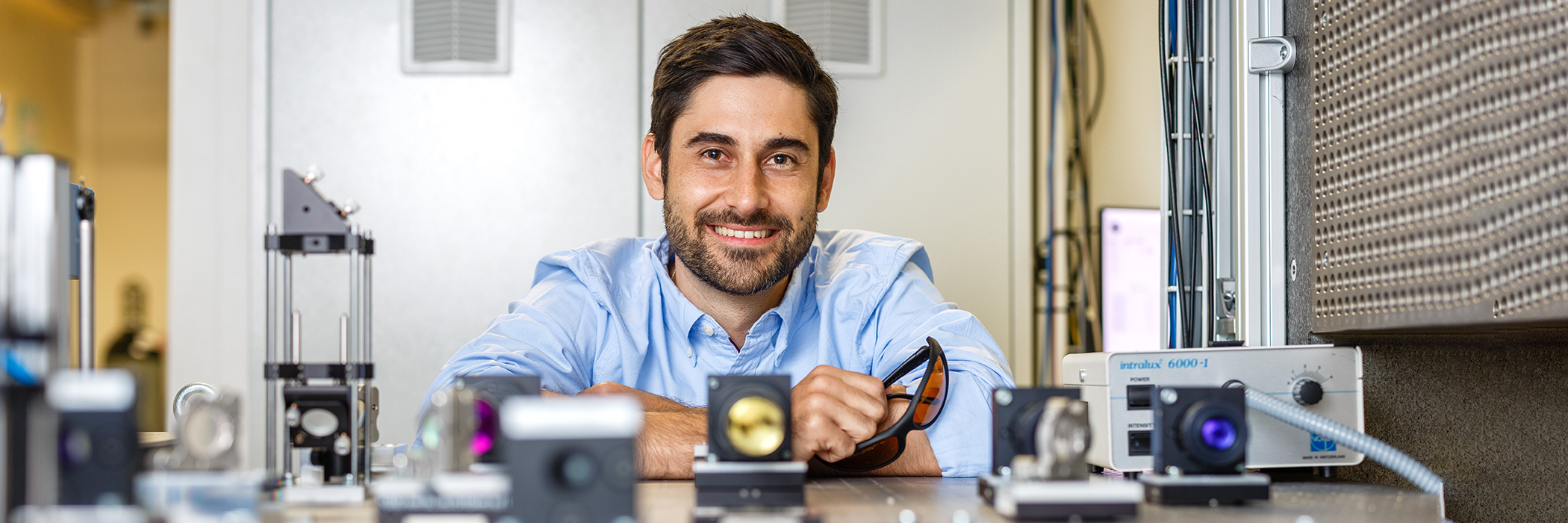Photonics and Laser Engineering
Lidar systems are revolutionising the mobility of the future, NIR technology is optimizing the agriculture and food industry, microscopy and spectroscopy form the basis of modern medical diagnostics, lasers are used to process materials of every conceivable kind with a high degree of efficiency, and fibre optic technology forms the basis of modern data communications and many laser processing machines. Industry 4.0 and IoT as well as quantum computers are based on photonic technologies. The future belongs to photonics. Be part of this future with the MSE Master’s in Photonics and Laser Engineering.
Graduates of the MSE Photonics and Laser Engineering profile are interdisciplinary all-rounders. They know and understand technologies and tools of photonics, their processes and their analysis.
- Laser systems and laser applications
- Optical engineering and metrology
- Thin film technology
Typical areas of application are medical technology, biotechnology, additive and subtractive manufacturing, telecommunication, sensor technology and renewable energies.
The Institute of Product and Production Engineering (focus is on laser development and laser machining) and the Institute for Sensors and Electronics
(focus is on measurement technologies and optoelectronics) offer this specialization:
